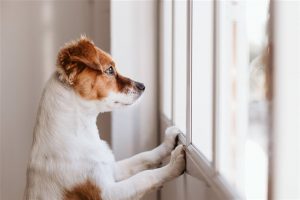Dogs, considered man’s best friends, are experiencing significant changes both in their biology and behavior due to their close coexistence with humans. Experts have defined this evolution as the “third wave of domestication”, reflecting a rapid adaptation to urban life and modern lifestyle, marking a milestone in their relationship with people.
Centuries ago, dogs played functional roles such as hunters or guardians. However, in recent decades, they have become important members of the family. According to a study by evolutionary anthropologists Brian Hare and Vanessa Woods from Duke University, this transformation was driven by daily coexistence and urban environmental conditions, which redefined their behaviors and needs.
Hare emphasizes that “natural spaces where dogs could roam freely are becoming increasingly scarce,” leading these pets to quickly adapt to smaller, structured homes like apartments in cities.
The distinctive feature of this phase is the speed at which changes occur: in just one generation, dogs could adopt new lifestyles. It is no longer just about their appearance or breed, but about how they integrate into urban living. This poses challenges for future owners, who must prioritize the dog’s temperament and specific needs over aesthetic aspects.

Challenges of urban living and how to face them
Adapting to the city not only transforms dogs but also the responsibilities of their caregivers. This is where education about their needs becomes essential, as it will ensure harmonious coexistence, especially in small spaces.
Some practical tips include:
Establishing regular walks: puppies require frequent outings to avoid accidents at home. This habit strengthens their health and reinforces the bond with their owner.
Pay attention and show affection: lack of interaction can lead to unwanted behaviors, such as urinating in inappropriate places to seek attention. Therefore, it is important for owners to ensure they dedicate the time and care that pets need.
Sterilization: Neutering helps reduce territorial behaviors like urine marking, facilitating their integration into family and urban life.

A shift in how we choose and care for dogs
This new stage in dog domestication invites us to reflect on the responsibilities of caregivers. In an increasingly urbanized environment, understanding and meeting the needs of these pets not only improves their well-being but also strengthens the bond between them and their owners.
The “third wave of domestication” is further evidence of the extraordinary adaptability of dogs, who once again prove to be much more than mere companions: they are an essential part of our lives.
Have you visited our YouTube channel yet? Subscribe now!

